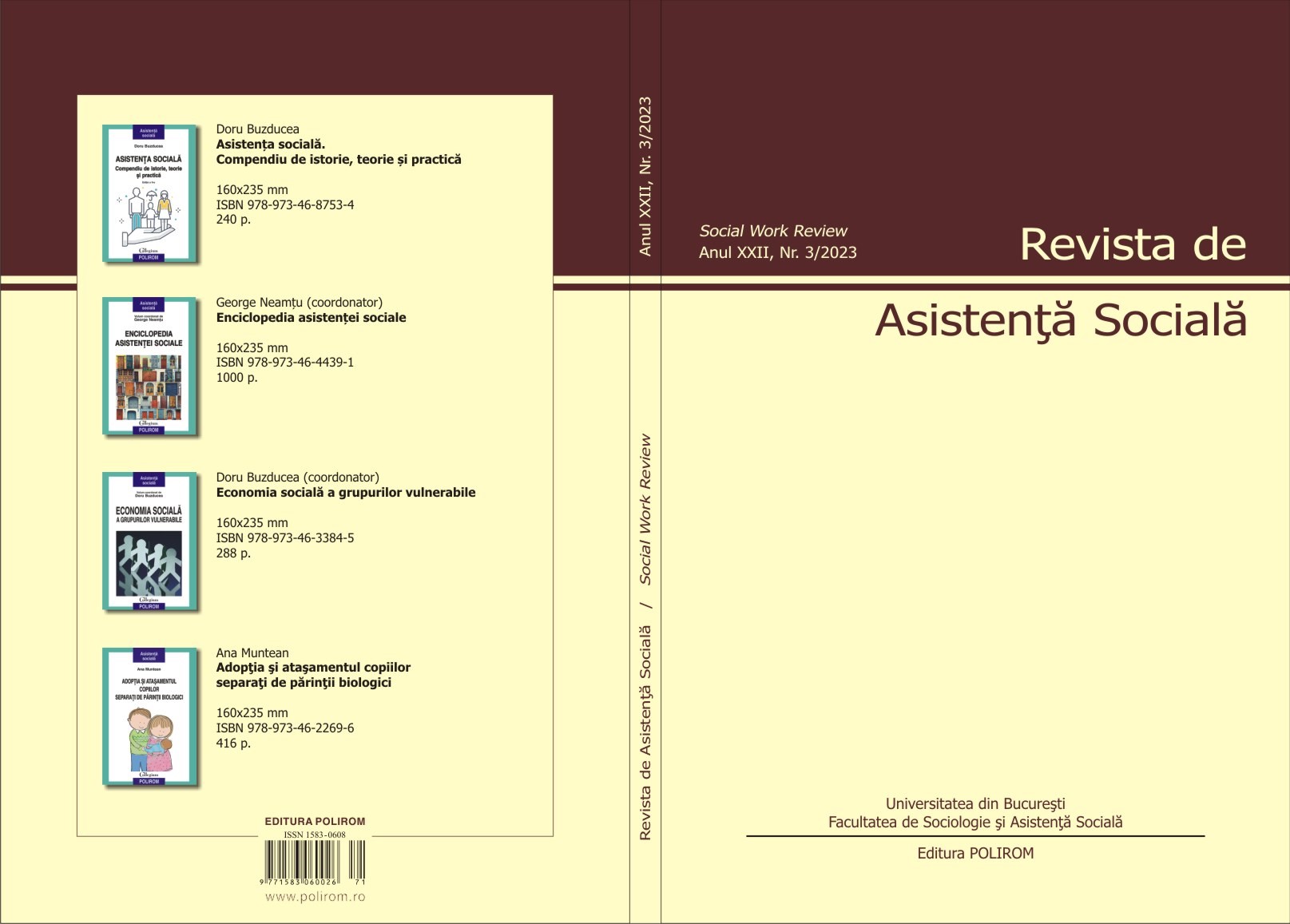Between a Shrinking and a Shifting Space: the Symbolic Inclusion of the Disability Movement in Policy-Making in Romania
Between a Shrinking and a Shifting Space: the Symbolic Inclusion of the Disability Movement in Policy-Making in Romania
Author(s): Leyla Safta-Zecheria, Gabriela Tănăsan, Gábor PetriSubject(s): Civil Society, Welfare systems, Methodology and research technology, Management and complex organizations, Policy, planning, forecast and speculation, Welfare services
Published by: POLIROM & Universitatea Bucureşti - Dept. de Sociologie şi Asistenţă Socială
Keywords: disability movement; self-advocacy; political participation; inclusion; advocacy
Summary/Abstract: In this paper, we explore how political opportunity structures for the inclusion of the disability movement in Romania are shaped from the perspective of self-advocacy and service provider NGOs active in the field of disability. Building on in-depth semi-structured interviews with nine representatives of self-advocacy and service provider organizations, we explore how they understood the processes by which they participated in policy formulation processes. Our results show that both service provider and self-advocacy organizations feel that their inclusion in the policymaking process is mostly symbolic and tokenistic, but that this can and did change in the last years. However, despite a general concern for a shrinking space for civil society organizations influence on policymaking in Central and East European countries, disability organizations in Romania describe the political opportunity landscape as a fluctuating one, rather than one that is evolving in one direction. Moreover, whereas service provider organizations seem to perceive higher levels of inclusion on the national level, whereas self-advocacy NGOs seem to perceive themselves as being better included and more influential on local levels. This also reflects the presence of bottom-up federative efforts of service provider organizations as opposed to the lack of successful bottom-up federative efforts in the field of disability based self-advocacy organizations. Finally, our paper problematizes inclusion in policy-making as an unequivocally positive process, showing how disability organizations sometimes choose not to participate in order not to legitimize problematic decisions through their symbolic presence in the negotiation process.
Journal: Revista de Asistenţă Socială
- Issue Year: XXIII/2024
- Issue No: 1
- Page Range: 153-165
- Page Count: 13
- Language: English
- Content File-PDF

